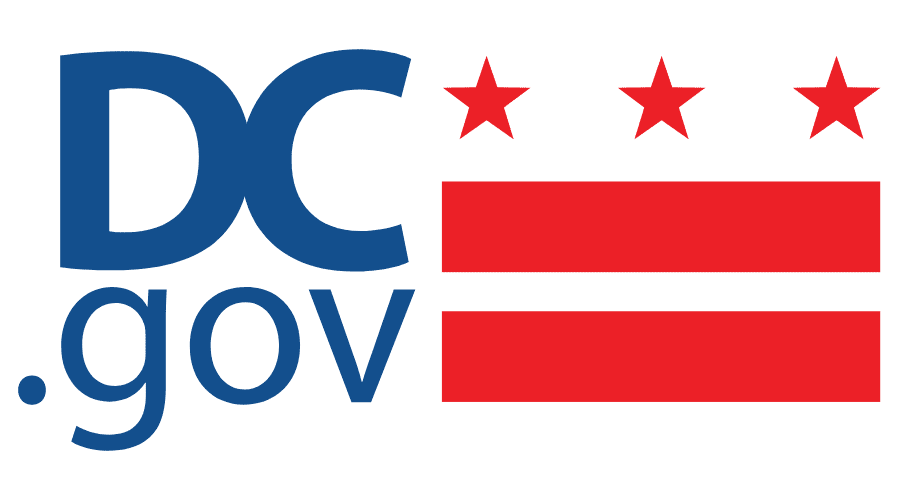In June, the Council of the District of Columbia passed legislation adopting a new budget and financial plan, beginning this coming October 1 and extending through fiscal year 2028. This latest round of annual budget negotiations came amid a changing fiscal landscape for the city post-Covid, including a decline in tax revenue from the commercial office market. The newly adopted budget and financial plan includes several new proposals that will impact the District’s revenue collections, adding just over $2.5 billion over the four-year financial plan, or more than $625 million a year, on average. Together these proposals add 4.6% to the District’s projected General Fund revenue in fiscal year 2025, increasing to 5.6% by fiscal year 2028.
What are the major revenue generators?
The Universal Paid Leave Program Amendment Act of 2024 is the largest revenue increase included in the budget, and is projected to bring in $322 million of new revenue in fiscal year 2025, the first year of the financial plan. This Act increases the tax rate “covered” employers (generally all private employers) pay on employee payroll from 0.23% to 0.75%, and directs the difference to be used for general purposes in the District’s Local fund budget. The initial 0.23% will still go towards the tax’s original purpose: funding paid leave for employees working in DC.
Collectively, the budget’s Medicaid Inpatient Hospital Directed Payment Act of 2024 and Medicaid Outpatient Hospital Directed Payment Act of 2024 are the next largest revenue-generating policy proposals. The budget provisions allow the District to charge hospitals on their net inpatient and net outpatient revenue. The provisions are projected to bring in almost $129 million in fiscal year 2025, most of which is dedicated to costs of the District’s Medicaid program.
Two scheduled increases in the District’s general retail sales tax rate, which is currently 6%, account for the next largest tax increase included in the new budget and financial plan. The budget legislation increases this rate to 6.5% in the second year of the financial plan (fiscal year 2026), and again to 7% beginning in fiscal year 2027. By fiscal year 2027, the District is projected to collect approximately $114 million in new sales tax revenue.
The rest of the budget’s new revenue-generating proposals are numerous but smaller in scale. Seven proposals generate at least $20 million over the four-year plan:
-
Reversing the Defunding of Our Climate Equity Commitments Amendment Act of 2024 ($24.5 million annually) – This provision increases assessments on gas and electricity providers to provide additional financial resources for the Sustainable Energy Trust Fund.
-
Income Tax Secured Bond and Out of State Municipal Bond Tax Amendment Act of 2024 (average of $14 million annually) – This provision repeals an existing personal income tax deduction for interest earned on municipal bonds (while preserving the exemption for interest earned on District and certain other bonds).
-
Combined Reporting Amendment Act of 2024 ($23 million in fiscal year 2027 and $16 million in fiscal year 2028) – This provision changes the method of combined reporting (which requires C-corporations to file as a single taxpayer) to include additional business activity of related companies.
-
Earned Income Tax Credit Amendment Act of 2024 ($14 million in each of fiscal year 2027 and 2028) – This provision reduces the cost of the DC Earned Income Tax Credit for filers with children by delaying a scheduled increase in the District’s match level for parents qualifying for the federal Earned Income Tax Credit. The District will pay these filers a tax credit equal to 100% of the federal EITC beginning in tax year 2029, rather than 2026.
-
Motor Vehicle Excise Tax Amendment Act of 2024 ($7 million annually) – This provision increases motor vehicle excise taxes for vehicles with fuel efficiencies of 25 miles per gallon or less and 40 or more miles per gallon, and it established an excise tax on electric vehicles.
-
Sports Wagering Amendment Act of 2024 ($6 - $7 million annually) – This provision opens up internet sports wagering District-wide to licensed private operators and taxes their gross gaming revenue at 30%. The provision also permits existing arena-based sports wagering operations to offer electronic sports wagering District-wide, and increases the tax rate to 20%. Net new tax revenues from the proposal are dedicated to the Child Trust Fund established under the Child Wealth Building Act.
-
Real Property Tax Amendment Act of 2024 ($5-$6 million annually) – This so-called “mansion tax” increases the real property tax rate on homes with a taxable assessed value over $2.5 million, taxing the portion exceeding $2.5 million at a rate of $1 per $100 of assessed value. Real property with more than 2 dwelling units is excluded.
Targeted tax and fee relief also passed
The adopted budget and financial plan also included several tax and fee relief provisions, including several with a cost of at least $20 million in total over the four-year plan. For families, the Child Tax Credit Amendment Act provides a fully refundable, $420 per-child tax credit for qualifying income levels, starting in tax year 2025. With the aim of addressing remote work’s negative impact on the downtown core, the Central Washington Activation Program Amendment Act allows the Mayor to award 15-year real property tax relief to office buildings being repositioned to other uses. General business tax and fee relief includes funding of the Business and Entrepreneurship Support to Thrive Amendment Act of 2022, a doubling of the real property tax credit for small retailers under the Small Retailer Property Tax Relief Amendment Act, and an increase in the District’s “Clean Hands” threshold under the Clean Hands Certification Economic Expansion and Revitalization Act.
For more details on any of these proposals, and other smaller or one-time revenue proposals and budget proposals, please check out the fiscal impact statement for the budget support act, found here.

